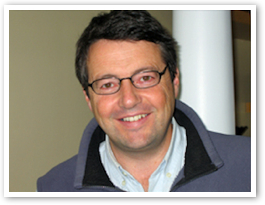Why Science Has No Competence to Speak about Philosophy and Theology of Things
- IAIN T. BENSON
One of the strangest facts of contemporary life is the amount of energy continually being put into the so-called "science vs. religion" debate.
 |
|
Iain T. Benson
|
As with so many other false dichotomies that the Center has tried to point out over the years, this one just keeps trundling along creating ever more heat than light. For some secularists, if Darwin didn't exist we'd have to invent him.
Basically, science has its own jurisdiction and as we have pointed out over the years (see the papers from the Centre's event at the University of British Columbia in 1999) it is not competent to reach beyond its own jurisdiction into the realms better left to philosophy and theology. In the same way, philosophy and theology ought not to try to over-reach into areas that are not their jurisdiction. Bad science and bad theology/philosophy result from getting the jurisdiction of these disciplines wrong.
This seemingly obvious point is lost time and time again when people who are atheists, agnostics or religious perform the category error just described. Science can never tell us if there is purpose and meaning in the universe because purpose and meaning, in ultimate terms, are not measurable by the tools of science. Similarly, religion and philosophy cannot tell us how the stuff developed and the inner workings of chemistry and physics (and so on) that are the proper subject matter of science.
Understood this way one should never accept a supposed dichotomy between "science and religion" in just the same way one should not accept a false dichotomy between "religion and the public" or "religion and the secular." In all cases, the beliefs of atheists/agnostics and religious believers inform both their science and their approach to religion and philosophy. There are many excellent scientists who are also theists just as there are some who are atheists. There are excellent philosophers and theologians who are not religious believers as well; so what? This is what we ought to expect.
What we have a right to reject at every turn, however, is the claim, too often made, that science provides knock-out arguments to religion. This claim is false and betrays that ignorance of the proper questions pertaining to the disciplines of science and religion that we might expect from an education system that has failed to require technical studies (such as science) to learn their place in the world in relation to those theological studies focused as they should be on purposes.
Part of the tragedy of a world increasingly dominated by technique and more and more vague about purposes, is that those masters of technique (particularly scientists) can start to speak about subjects in which they have no competence. When they do, they say, for example, "science tells us that religions are outmoded" and we have every right to say: "you are speaking nonsense and are outside your realm of expertise if you claim to say that as a scientist."
Clever Darwin and his followers, however, were and are about scientific observation of the world around us. They have no competence to apply these observations to anything except erroneous extensions of religious and philosophical insights to the natural world. Science is able to criticize the bad science offered up by religious zealots but science should not be surprised when the bad theology and philosophy offered up by science are criticized by those who have the expertise to offer such criticisms. Once we rule out of both sides — the bad science and the bad theology/philosophy that is rampant today, we can then begin to ask what science is telling us about "stuff."
One thing science can never do, however, is to give us the theological or philosophical answers to "why" and "what for?" that are the proper subject matter for religions and philosophy. When science purports to answer "why" or "what for?" questions better left to the jurisdiction of theology and philosophy we should point our finger at it and say "sit" like we do to unruly mutts; the problem is that only sufficiently trained mutts will obey such directives — the rest will just continue to romp around causing damage.
 This is Meaghen Gonzalez, Editor of CERC. I hope you appreciated this piece. We curate these articles especially for believers like you.
This is Meaghen Gonzalez, Editor of CERC. I hope you appreciated this piece. We curate these articles especially for believers like you.
Please show your appreciation by making a $3 donation. CERC is entirely reader supported.

Acknowledgement
Benson, Iain T. "Why Science Has No Competence to Speak about Philosophy and Theology of Things". Centre Article vol 140 (March, 2007).
Reprinted with permission of the Centre for Cultural Renewal and the author, Iain Benson.
The Author
Iain Tyrrell Benson is a legal philosopher, writer, professor and practising legal consultant. The main focus of his work in relation to law and society has been to examine some of the various meanings that underlie terms of common but confused usage. An advocate that the public sphere should be open and inclusive of all citizens and their groups, whether their faith and belief commitments are based on non-religious or religious beliefs, Iain Benson was the first Executive Director of the Centre for Cultural Renewal, a non-partisan, non-denominational charitable foundation with status in both Canada and the United States, dedicated to examining the nature of pluralism with particular reference to the associational rights dimension of religion and expression.
Copyright © 2007 Centre for Cultural Renewal

